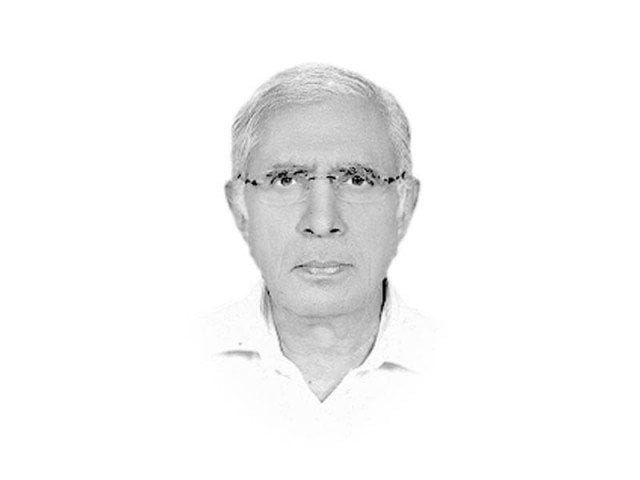PTI should tread slowly
The PTI government led by Prime Minister Imran Khan has come in promising change

The writer served as executive editor of The Express Tribune from 2009 to 2014
So, let us not rush Imran. Neither should he rush where angels fear to tread.
It is not possible for a political party that had remained in opposition for nearly 22 years and that too in an agitation mode to become the all-knowing government in a matter of even one full five-year tenure.
Zulfikar Ali Bhutto was an insider. Therefore, when he took over in December 1971 as civilian chief martial law administrator, he could move quickly and introduce the reforms that he had wanted to implement within days of reaching the presidency.
Imran has promised reforms in almost all sectors. But he cannot keep these sectors waiting in a limbo until all his desired reforms are put in place in each of these sectors. Therefore, these sectors would be undergoing reforms at a gradual pace. This does not mean that he cannot take drastic decisions in individual cases on the spot if he felt the need.
But finding the right man for the right job is also a time-consuming exercise.
Let us also look at what he can and cannot do with respect to his favourite subject — corruption. In countries whose example he keeps on referring to every time he reiterates his determination to fight corruption, no one is arrested until the prosecution has enough evidence to prove its case prime facie in a court of law. Not like in our country where suspects are arrested right and left and are kept in remand for days together on the excuse of gathering evidence, while at the same time a media trial is conducted of the accused creating the perception that the courts have already held the accused guilty.
In the 1990s, both the PML-N and the PPP played this game without proving conclusively any case of corruption against each other in a court of law. If the PTI also wants to play the same game, it is welcome to do so. But it would end up only adding to the extent of corruption whose monstrousness is already suffocating.
In civilised societies, corruption is curbed not by laws but by three social controls — a strong parliament, an independent judiciary and a fearlessly free media.
Unjustified cover-ups and suppression of truth regarding crucial questions of public accountability have proven to have seriously damaged the state itself.
Authorities have not been sparing in their efforts to put a stop to media that covers areas they consider off-limits. They have put pressure on enterprising investigative journalists and their potential sources using special laws against them, accusing them of taking liberties with the so-called state secrets or of the risks such disclosures are supposed to pose to the security of the state.
The ‘war on terror’ has brought another dimension to this constant tension between intelligence/ security agencies and investigative journalists. It is true, of course, that reporting on terrorism also means reporting on counter-terrorism, and on the way the conduct of the police, the intelligence services and the judiciary as well.
And the last thing the authorities want is an exposé of failings, incompetence or turf wars inside the ‘state security apparatus’. The reaction to the Pashtun Tahaffuz Movement reporting certainly falls under this category of suppression.
Too often secrecy is being used not to protect legitimate national security interests but to hide gaffes or even illegal actions from the eyes of the public.
The media industry in Pakistan has never claimed special privileges. Nor has it ever set itself above the law of the land. In case the government at any time felt that the media was transgressing the so-called ‘red-lines’ while performing its watchdog role, it can take its complaints to Pemra and the Press Council of Pakistan but, of course, after having liberated these two institutions from direct government controls.
Published in The Express Tribune, August 25th, 2018.
Like Opinion & Editorial on Facebook, follow @ETOpEd on Twitter to receive all updates on all our daily pieces.















COMMENTS
Comments are moderated and generally will be posted if they are on-topic and not abusive.
For more information, please see our Comments FAQ